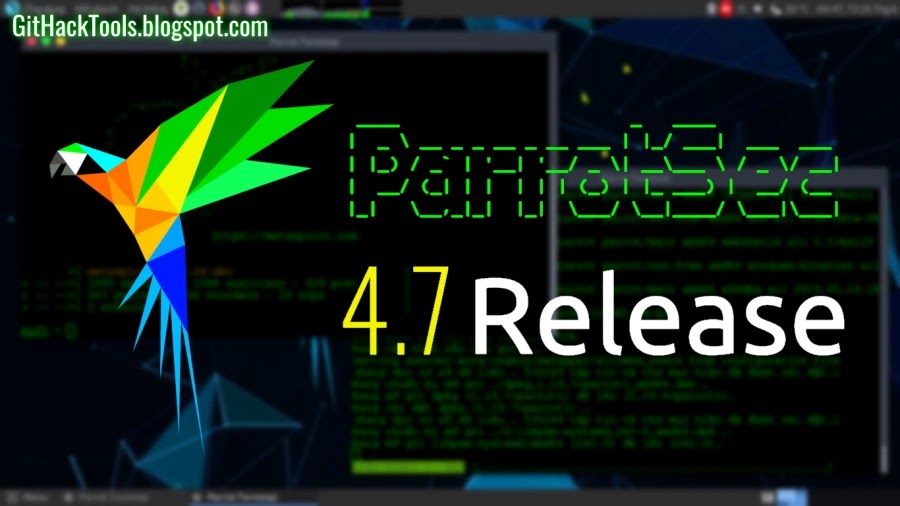Parrot Security OS 4.7 Released With New Linux Kernel, Menu Structure, Tools Improvements And Many Changes
In Sep 18 2019, Parrot Security OS 4.7 has released, with many new following changes below.
Latest Linux 5.2.x series
The new ISO files of Parrot 4.7 are being released only now, but we were the first Debian derivative distribution to introduce Linux 5.1 and 5.2 to all our users, and now ParrotSec team is ready to offer it also with our ISO files rebild cycle to support more devices and integrate all the latest linux features from the beginning.
New sandbox behavior (opt-in rather than opt-out)
Sandboxing is a great thing, and ParrotSec team was in the first line when they introduced our custom Firejail and AppArmor solution for the first time many years ago. We still want to improve such feature and ParrotSec team has a whole team dedicated to improve sandboxing and hardening of the Parrot Security OS system, but ParrotSec team had to face the many users with issues caused by the restrictions of our sandbox.
In Parrot Security OS 4.7 the sandbox is disabled by default, and users can decide wether to start an application sandboxed or not. You can easily start the sandboxed version of an installed program from the /sandbox/ folder or from a dedicated menu that ParrotSec team plans to improve in the future (meanwhile the search feature of the bottom menu will fit all your needs), or you can re-enable it by default by using the
firecfg tool.New menu structure and tools improvements
The pentesting menu structure was refactored and re-designed to make tools easier to access in a more logical hierarchical structure. New tools were also added to the project, and ParrotSec team plans to add even more in the future. Not all of them are going to be pre-installed, but a good set of tools in our repository enables pentesters to build up the perfect pentest system for their specific needs, regardless the default package selection picked by ParrotSec team.
Domain changes
To reflect the neutrality of a distro that started as a pentest-only system and became more general purpose later with Parro Home, the community voted through a democratic process to switch to parrotlinux.org as the new default domain of the project.
ParrotSec team will still use ParrotSec.org for other things (included the old email addresses), and they introduced other project domains to handle specific parts of the infrastructure.
Repository changes
ParrotSec team is preparing to integrate a future LTS branch, so they decided to rename the current repository from stable to rolling. Nothing changes for the end user, and the current Parrot Security OS branch will continue to behave the same as before, but now with a different name to better reflect the rolling release nature of the system, waiting for the LTS edition to join the Parrot Security OS family along side the rolling branch in a similar way OpenSUSE does.
New MATE 1.22 release: Parrot Security OS 4.7 ships with the latest MATE 1.22 desktop environment.
Miscellaneous: New Firefox Browser 69, the latest Radare2 and cutter versions and many other important upgrades are all aboard as expected in a properly developed rolling release distro.
How to upgrade to the lastest Parrot Security OS version
You can update your existing Parrot Security OS system with this command:
sudo parrot-upgradeOr use the raw
apt commandsudo apt update
sudo apt full-upgradeDon't forget to use this command regularly (at least once a week) to receive the latest security updates and bugfixes from the Parrot Security OS repository.
Or you can download the latest release from official download page.
From Parrot Project Blog




0 Commenti:
Posta un commento
Iscriviti a Commenti sul post [Atom]
<< Home page